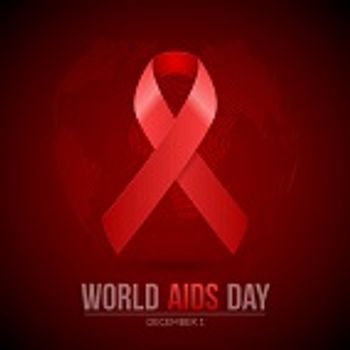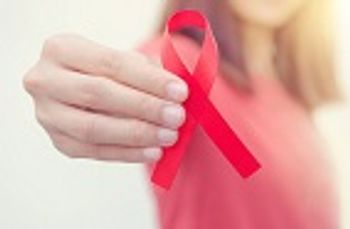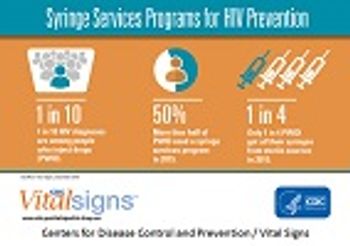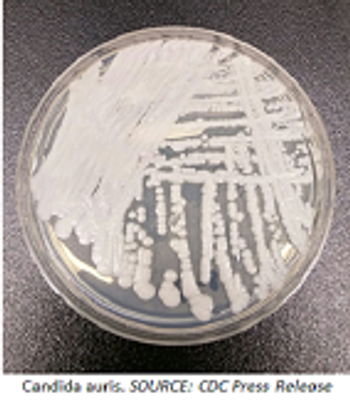
New, cost-effective technology from a biotech start-up may be able to revolutionize Zika diagnosis.

New, cost-effective technology from a biotech start-up may be able to revolutionize Zika diagnosis.

UC San Francisco researchers have found a link between pubic hair grooming and sexually transmitted diseases.

A dynamic partnership has resulted in the development of a new, minimally-invasive device that can be used to treat HIV, cancer, and a number of other disease, ensuring medicinal adherence.

As Hawaii struggles to recover from two food-borne outbreaks, DOH officials seek to make revisions to their food safety regulations to enhance food-borne illness prevention.

University of New Hampshire (UNH) scientists are developing an algorithm to predict when NH’s Great Bay Estuary’s oysters may be at risk of contamination.

In honor of National Influenza Vaccination Week, the CDC reports on influenza vaccination coverage and the benefits of receiving a flu shot.

The CDC’s NCHS released its mortality report on life expectancy and leading causes of death for adults and infants in 2015.

UN Secretary-General Ban Ki-moon offers a public apology for a role in Haiti’s devastating cholera outbreak.

California health officials’ “Getting to Zero” plan aims to dramatically cut the number of HIV cases in California through increased surveillance, access to care, and treatment.

Researchers have found evidence that pre-cut bagged salads may encourage Salmonella colonization.

In honor of World AIDS day, the National Institutes of Health reflected on advancements made in the fight against HIV and address future goals designed to end the HIV/AIDS pandemic.

The National Institute of Mental Health has granted researchers at the University of Pennsylvania School of Nursing and New York Blood Center $769,578 to go towards efforts to create an HIV awareness program for women.

This afternoon, the CDC held a telebriefing on how the use of syringe services programs by injection drug users has increased, but access to these programs needs to improve in order to improve HIV prevention efforts.

The first HIV vaccine efficacy study in seven years is currently being conducted in South Africa, with researchers testing if a new vaccine regimen called HVTN 702 can provide adequate protection against HIV.

A recent presentation by US Food and Drug Administration representatives explained why contaminated sprouts continue to be the cause of many food-borne illnesses.

Two cases of meningococcal disease strain B have been confirmed at Oregon State University, urging officials to take preventive measures.

IBM, Walmart, and Tsinghua University have partnered up to improve food safety practices in China.

A recent study assessed if laws pertaining to the screening and reporting of hepatitis B may increase identification in pregnant women and thus, allow for more infants who have been exposed to the virus to receive post-exposure prophylaxis.

The Alabama Department of Public Health has issued a health advisory in an attempt to increase awareness and prevention efforts in Madison County after seeing a dramatic increase in reported syphilis cases since last year.

The US Food and Drug Administration has announced that Sabra Dipping Co., LLC has recalled certain hummus products due to concerns about Listeria monocytogenes.

Researchers have found that molecules left on a individual's phone can reveal a good deal about his/her lifestyle.

Scientists from the National Institute of Allergy and Infectious Diseases have discovered a broadly neutralizing antibody that is able to neutralize 98% of HIV strains.

York’s Lassonde School’s Micro and Nano-scale Transport (MNT) Lab researchers have discovered “DipTreat,” a water treatment device capable of detecting and removing E. coli from drinking water.

Creutzfeldt-Jakob disease, a rare & fatal degenerative brain disorder, has been confirmed in a patient at Maine Medical Center.

Seven cases of Candida auris have been identified within the United States, according to a report in the latest Centers for Disease Control and Prevention’s Morbidity and Mortality Weekly Report.

The probability of a measles epidemic occurring in Texas increases as the number of children exempt from receiving the measles vaccine continues to grow.

Thirty years after the 1980s AIDS crisis, researchers have proven that Gaétan Dugas, known as Patient Zero, was, in fact, not the first AIDS case.

The US Food and Drug Administration has approved Merck’s Zinplava, a monoclonal antibody that will reduce recurrence of Clostridium difficile in high risk patients.

An employee in the prepared foods section of a Whole Foods Market in Detroit, Michigan, has been diagnosed with hepatitis A.

The CDC warns that open-heart surgery patients are at increased risk of infection due to contaminated heater-cooler devices.